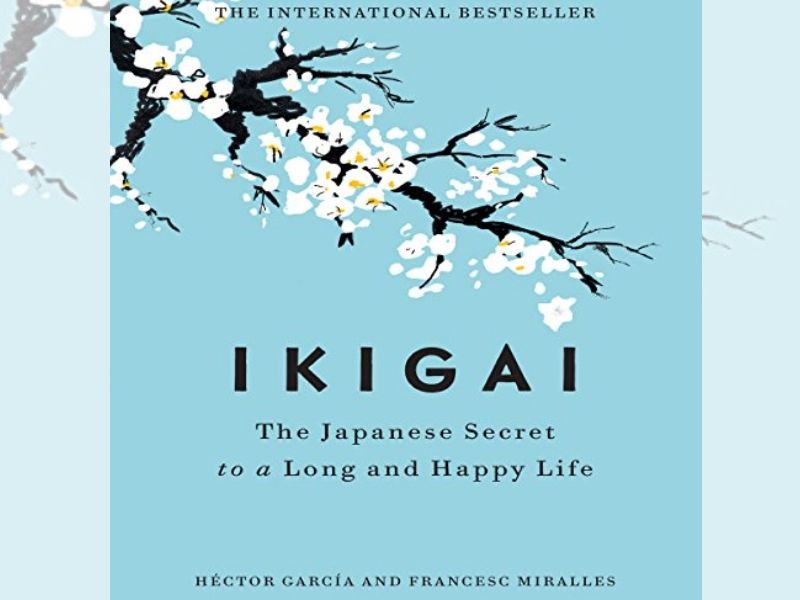
Ikigai — The japanese secret to a long and happy life, Hector Garcia & Francesc Miralles,
Penguin Random House; Rs.1,176 Pages 185
Okinawa, the largest of a group of islands south of the main Japanese archipelago, was the theatre of the bloodiest land combat between American Allied troops and soldiers of imperial Japan in World War II.
Since then despite its war-ravaged history, occupation and administration by American forces for several decades and the presence of a large American military base in Okinawa to this day, this peripheral island of Japan has become the globally famous lifestyle exemplar of the contemporary world.
In 2016, two Spaniards — Hector Garcia, a Tokyo-based author and scholar of Japanese culture, and Francesc Miralles, a Barcelona-based travel writer — resolved to investigate the extraordinary longevity of the residents of Okinawa which hosts 24.55 people aged over 100 for every 100,000 inhabitants, “far more than the global average”.
Ikigai, an international bestseller, is the outcome of their year-long sojourn on the island and their wide-ranging research unravelling the lifestyle and existential philosophy of the happy, contented and durable people of Okinawa. It is certain to induce all readers to reappraise their modus vivendi.
This short, motivational self-help manual attributes the longevity of the inhabitants of Okinawa to a combination of mind, body and culture factors. And it’s pertinent to note that the people of this outpost don’t merely live long, they live joyful and healthy lives and fade out contented and fulfilled, i.e, they usually die naturally of old age rather than the dreadful diseases and afflictions which are becoming commonplace the world over. Garcia and Miralles believe the unusually serene and harmonious lives of Okinawans is due to their constant but leisurely search for ikigai, a philosophical construct which according to the authors, translates into the French raison d’etre (‘reason for living’).
Obviously, soul-searching in the pursuit of happiness requires some guidelines. These guidelines are provided by the authors based on their study of the lifestyle, customs, diet and mutually supportive community of the world’s happiest people.
Two of the most important secrets of Okinawa — which the fast ‘expanding’ Indian middle class would do well to note — are the 80 percent rule (aka hara hachi bu) and forming moai, described as “an informal group of people who look out for one another”, i.e, mutually supportive communities. “For many, serving the community becomes part of their ikigai,” write Garcia and Miralles.
Hara hachi bu, which the Japanese use as the equivalent of the French bon appetit (good appetite!), prescribes that one should fill only 80 percent of the stomach’s capacity during mealtimes. This advice is particularly applicable to middle class Indians who increasingly pride themselves for their effete epicureanism and often describe themselves as ‘foodies’ without the slightest trace of embarrassment that they are gluttons in a society in which over half the population subsists on two meals, if that, per day.
Moai, a sense of community brotherhood, also recommended by the authors as beneficial for health and longevity, is equally important for contemporary Indians brimming with caste, religious, language and income disparity antagonisms. It’s a telling commentary that despite having suffered the loss of almost 100,000 lives during World War II, “Okinawans live by the principle of ichariba chode, a local expression that means ‘treat everyone like a brother, even if you’ve never met them before’”.
There’s much to offer by way of useful advice in this insightful book on the convivial lives of Okinawans. They never stop working, even after they retire from their jobs. Most of them rise early and invest the same amount of energy in maintaining immaculate gardens, meeting and partying with friends and eating moderate quantities of fruits and vegetables, coupled with refreshing cups of green tea.
“In fact, many Japanese people never really retire — they keep doing what they love for as long as their health allows,” write Garcia and Miralles. And a very important ingredient of the work ethic of the Japanese and Okinawans in particular, is that they constantly strive to attain a state of ‘flow’ in whatever they do. Flow is a state of grace, complete immersion in a task to the extent that one loses all sense of time and place due to enjoyable involvement with the task.
The celebrated California-based psychologist Mihaly Cskiszentmilhalyi and author of Flow: The Psychology of Optimal Experience (2008) describes flow as “the state in which people are so involved in an activity that nothing else seems to matter; the experience itself is so enjoyable that people will do it even at great cost, for the sheer sake of doing it”. Okinawans live long, fulfilling lives because their energy is not wasted in digesting food, their minds are calm because of meditation, factors which enable them to quickly attain a state of flow in activities which become their ikigai.
A valuable book, highly recommended for those with troubled minds.
Dilip Thakore
Also read: Why villains win: Talking to Strangers by Malcolm Gladwell



























